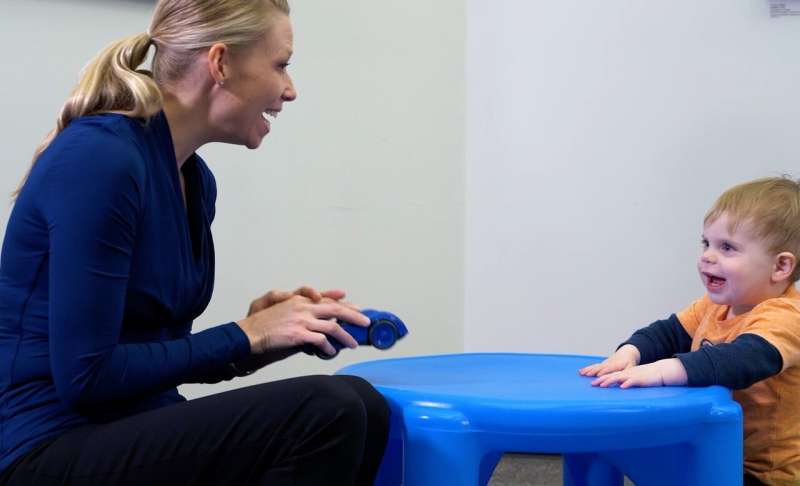Study paves way for earlier autism diagnosis in Indiana

A 2020 report from the Centers for Disease Control estimates that 1 in 54 children in the United States is identified each year with autism spectrum disorder (ASD). While children can be diagnosed with ASD as early as 2 years old, most children are still being diagnosed after the age of 4.
Led by Nancy Swigonski, MD and Mary Ciccarelli, MD, a team of faculty at Indiana University School of Medicine have developed a statewide early ASD screening and evaluation system in the primary care setting showing success in improving access to evaluations and lowering the age of diagnosis. This study, published July 6 in Pediatrics, is the first of its kind in the U.S. to include health care systems across an entire state.
"One of the unique aspects of this effort is its scale. While similar innovative diagnostic approaches have previously been tested across the country, our primary-care based Early Autism Evaluation hubs provide data representing much of the state of Indiana," said Rebecca McNally Keehn, Ph.D., HSPP, lead author on the Pediatrics study. "By improving access to earlier high-quality diagnostic evaluations in children's local communities, our hope is that children will be enrolled in evidence-based interventions that can improve developmental outcomes here in Indiana."
Of over 2,000 patients evaluated at the Early Autism Evaluation (EAE) hubs across Indiana from 2012 to 2018, 33 percent have received an ASD diagnosis. The mean age of diagnosis in the hubs is 30 months, while the national average hovers around 48-plus months. The study also found that the average wait-time to be seen for evaluation at an EAE hub was 62 days, compared to previous estimates of 9 to 12 months in specialty diagnostic centers.
"This system empowers communities to be able to provide life-changing diagnostic services locally, drastically altering the trajectory of development in children who previously remained without diagnoses until age 5 or older," said Naseer Syed, MD, pediatrician at Meridian Health Services in Muncie, Indiana. "To actively be a part of something that life-changing is a reward in and of itself. To witness the impact this has on the child and their family makes it all worthwhile."
A critical component of the EAE hubs is the partnership of organizations and professionals across the state of Indiana working together to get needed care to families potentially facing this diagnosis. Syed is one of more than 30 primary care physicians and nurse practitioners statewide who have been trained by EAE hub leadership to provide this specialized ASD evaluation. This training allows physicians to be able to identify children who are at risk for ASD in a 90-minute primary care visit and then to collaborate with the referring primary care physician to access interventions and community resources.
The development and evaluation of the EAE hub system has been made possible by the generous support of Riley Children's Foundation and Kiwanis Indiana Three Wishes Campaign. Additional funding was provided by Project LAUNCH, Indiana State Department of Health, and ECCS CoIIN.
More information: Rebecca McNally Keehn et al, A Statewide Tiered System for Screening and Diagnosis of Autism Spectrum Disorder, Pediatrics (2020). DOI: 10.1542/peds.2019-3876

















